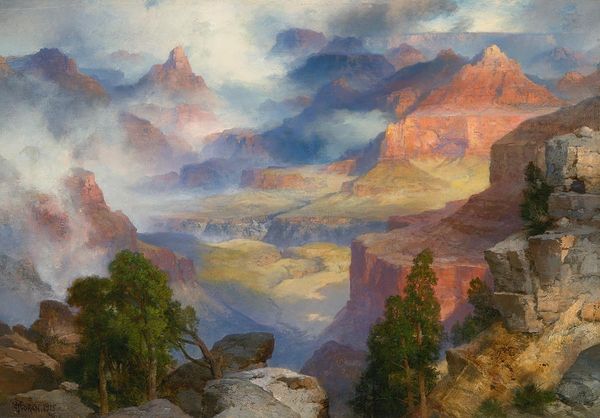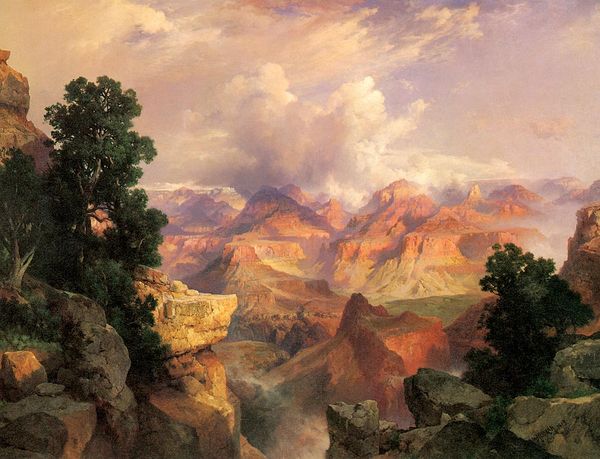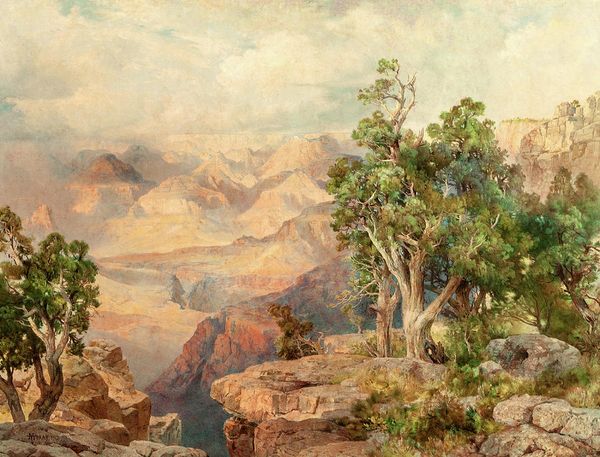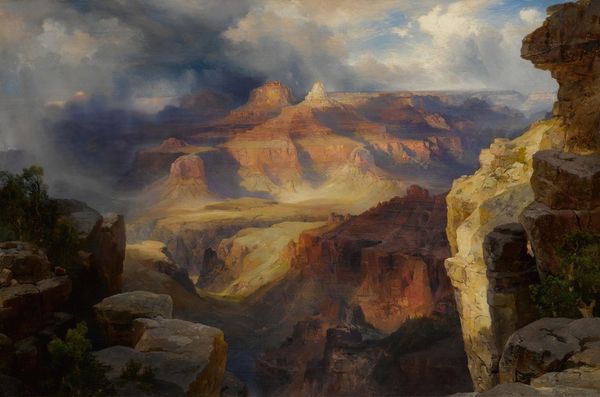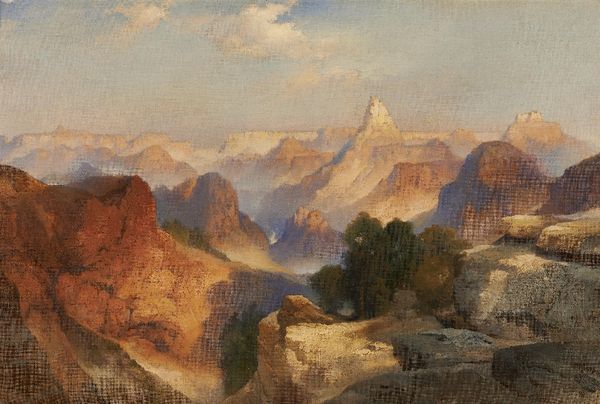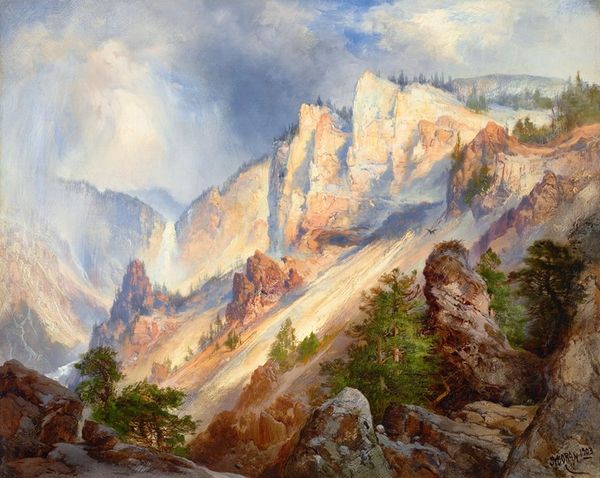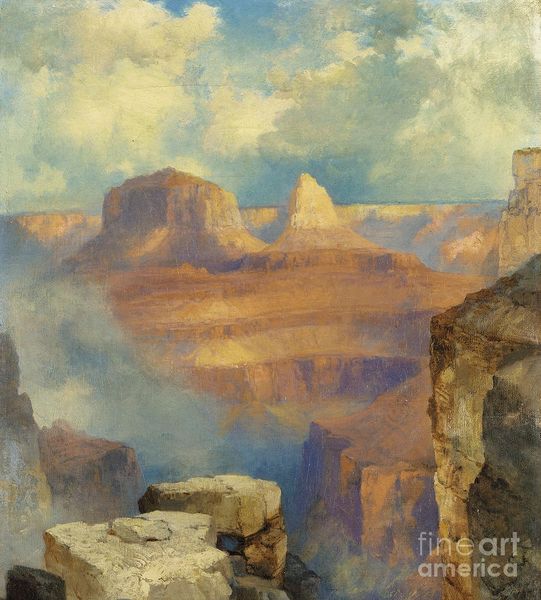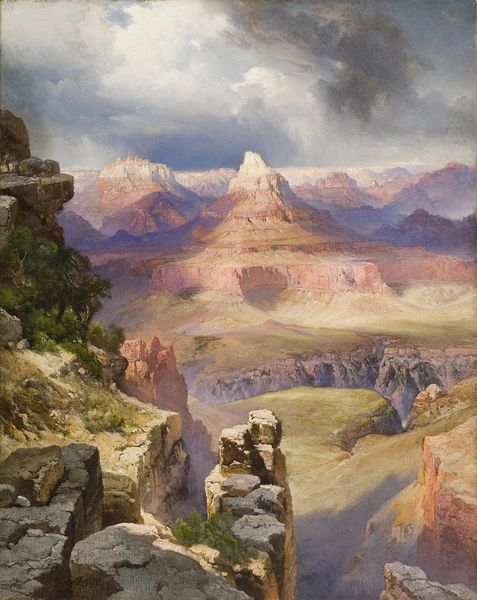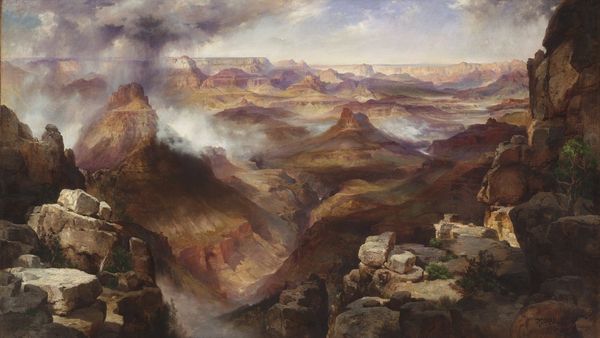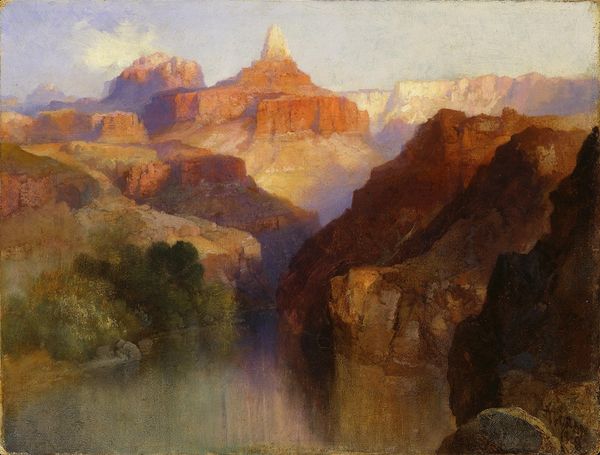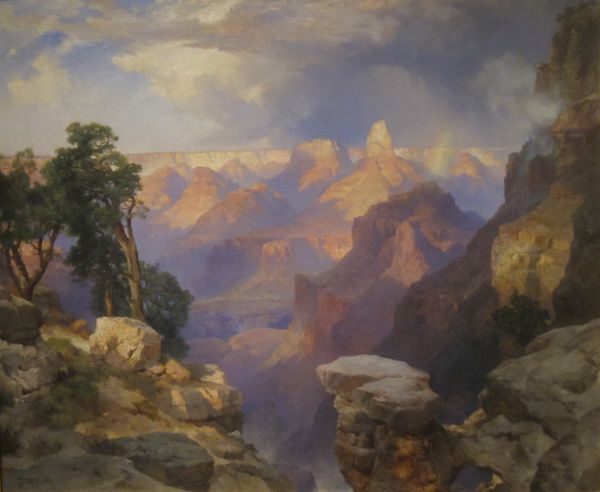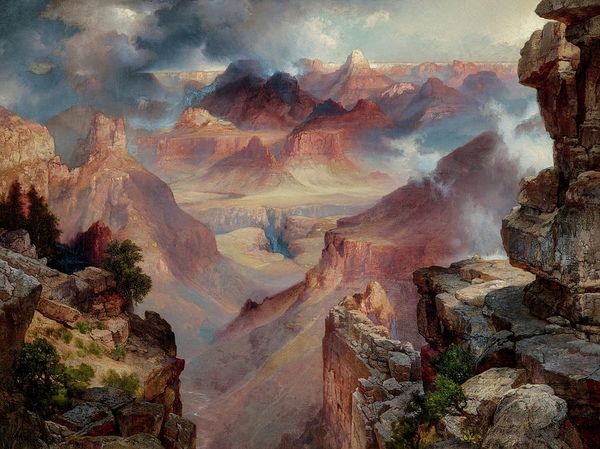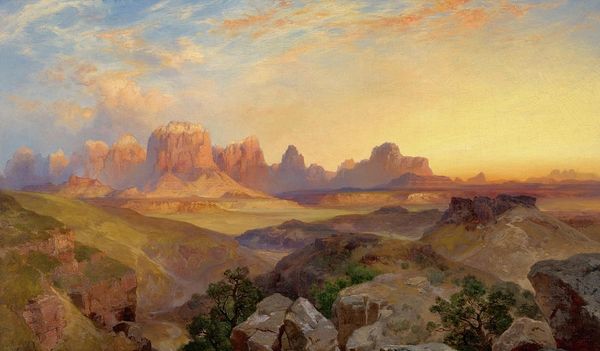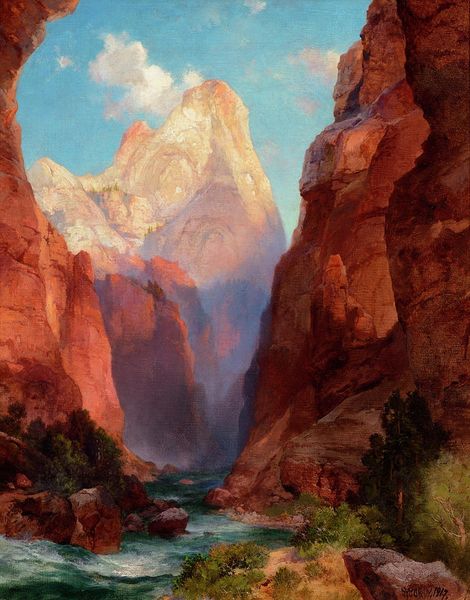
Copyright: Public Domain: Artvee
Here we see Thomas Moran's landscape painting of the Grand Canyon and the Colorado River, a representation that encapsulates the 19th-century American ideology of Manifest Destiny. Moran, part of the Hudson River School, captures the sublimity of the American West, framing it as an almost divine offering to settlers. But this perspective erases the complex histories and identities of the Indigenous peoples who were the land’s original stewards. The visual grandeur of the canyon, painted with awe and reverence, thus overshadows the narrative of displacement and cultural erasure. Moran stated, "The places that can be depicted will, so far as my abilities permit, make a valuable contribution to the history of our country." By focusing on an idealized landscape, Moran’s painting subtly underscores the political agenda of westward expansion, reflecting a society grappling with its own identity. The emotional impact of the painting – a sense of majesty and promise – is thus intertwined with a history of dispossession and the erasure of Native American identities.
Comments
No comments
Be the first to comment and join the conversation on the ultimate creative platform.
